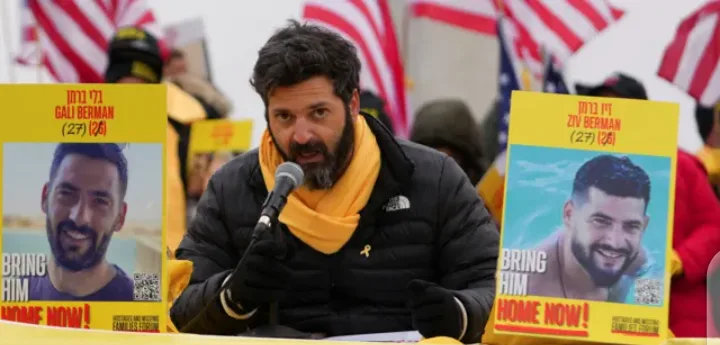Every Day Feels Like a Year”: Israeli Families Fear for Loved Ones Still Held in Gaza
By Parrot Newspaper
Every morning, Liran Berman wakes up wondering: Are my brothers still alive? It’s been 19 months since his twin brothers, Gali and Ziv, were snatched from their home in Kibbutz Kfar Aza during the Hamas-led attack on 7 October 2023. Nineteen long months of silence, fear, and fading hope.
“They were taken from our home,” Liran said softly, his voice thick with exhaustion and pain. “And every day they remain there, they are in danger.”
Across Israel, families like Liran’s live with a heavy burden—an unbearable uncertainty that gnaws at their souls. The question of whether their loved ones are still alive is becoming harder to answer. What was once fragile hope now teeters on the edge of despair.
Earlier this week, Israeli Prime Minister Benjamin Netanyahu admitted there was “uncertainty” about the fate of three of the 24 hostages previously believed to be alive. His comments followed US President Donald Trump’s statement that only 21 of the original hostages were still presumed living.
For families who have held on to every shred of optimism, the shift in numbers was not just a statistic—it was a gut punch.
“I don’t sleep,” one mother told BBC reporters. “I imagine the worst, then scold myself for thinking it. But how can you not, when no one can tell you if your child is even alive?”

The hostages were taken amid one of the bloodiest days in Israel’s recent history—when over 1,200 people were killed by Hamas-led militants. Among the chaos, 251 people were taken into Gaza. Since then, more than 52,000 people have died in Gaza, according to Hamas-run authorities. The war has only deepened the pain on both sides of the border.
The Israeli government has now approved a more aggressive military campaign, promising a “forceful operation” aimed at crushing Hamas and rescuing the remaining hostages. Netanyahu also hinted that Gaza’s 2.1 million civilians may be moved “to protect them” as troops roll in.
But that decision has only added another layer of anxiety for families who fear their loved ones may become collateral damage in the fog of war.
Liran, speaking to the BBC shortly after the announcement, said, “I hope that Israel is sending the forces to put pressure on Hamas to sit down [for talks]. When Hamas felt threatened before, they made deals. I hope this isn’t just about revenge.”
There was a glimmer of success during the ceasefire earlier this year, when 33 Israeli and five Thai hostages were released in exchange for roughly 1,900 Palestinian prisoners. But the ceasefire didn’t last. On March 2nd, Israel halted all aid and supplies into Gaza and soon resumed its offensive.
For Liran and many others, every policy decision, every military move, is measured not by strategy—but by its potential to either bring their loved ones home or seal their fate.
“We are not politicians. We are just families,” one father told journalists, clutching a worn photograph of his son. “We don’t want power, we don’t want revenge. We want to hug them again. Is that too much to ask?”
As the conflict deepens and hope flickers, one truth remains—these families are fighting a quieter, more painful war. A war of waiting. A war of not knowing.
And in that war, every day feels like a year.

